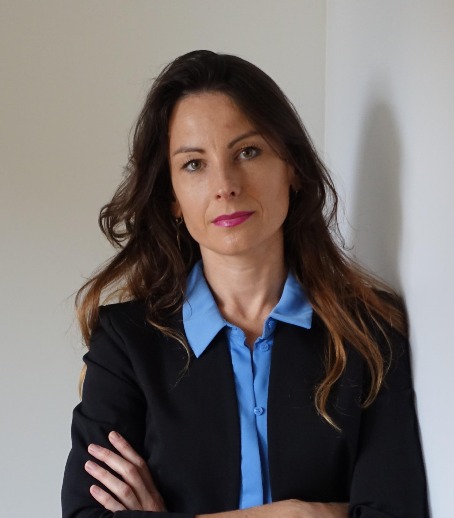ERC Starting Grants for two UG researchers
Two UG researches, both working at the Faculty of Science and Engineering, have been awarded an ERC Starting Grant: Jingxiu Xie and Gosia Wlodarczyk-Biegun . The European Research Council's (ERC) Starting Grants consist of €1.5 million each, for a period of five years. The grants are meant for outstanding researchers with the aim of stimulating cutting-edge research in Europe.

Jingxiu Xie - Intensified processes for CO2 conversion to sustainable synthetic fuels
In this project, Jingxiu Xie aims to develop intensified catalytic processes for converting CO2 to synthetic fuels. Synthetic fuels have the potential to serve as sustainable aviation fuels, making their successful production from CO2 a solution to two critical societal challenges and a significant step towards realizing a truly circular economy.
Traditionally, metallic cobalt catalysts are used in the Fischer-Tropsch Synthesis technology to convert syngas (CO and H2) into synthetic fuels, but they produce primarily methane when applied to CO2. To address this, Xie proposes a novel concept called reactor zoning, which customizes the catalyst’s environment within the reactor. This approach contrasts with conventional methods that focus on tailoring catalyst materials and active sites, signifying a paradigm shift in catalysis, reactor engineering and process intensification research. Therewith, this will be the first demonstration of metallic cobalt catalysts ‘converting’ CO2 to synthetic fuels in a single reactor.

Gosia Wlodarczyk-Biegun - Jam with the flow: Microgel-based (bio)inks that assemble during printing
Many materials found in nature, such as spider silk to mention the best-known example, have remarkable properties due to their unique structure achieved via the precise processing of material precursors. Inspired by this phenomenon, Gosia Wlodarczyk-Biegun will apply a similar principle in extrusion-based 3D printing to obtain new materials with interesting properties for medical applications. Extrusion 3D printing is a booming approach in tissue engineering allowing to build patient-specific constructs, including artificial tissues or organ mimics. However, a portfolio of advanced printable biomaterials is limited and new approaches are still needed.
In her project, Wlodarczyk-Biegun will develop a new type of material composed of gel microspheres that can change dimensions and interact together (jam) during printing. The printed constructs will closely resemble real tissues and will be used to study breast cancer progression.
Xie and Wlodarzcyk-Biegun are Rosalind Franklin Fellows. Both researchers were appointed to the RUG with funding from the sector plans: a structural strategic investment program in the Netherlands aimed at strengthening higher education and scientific research. The sector plans are designed to improve the quality of education and research and to promote cooperation between universities.
About ERC
The ERC wants to encourage promising young researchers in Europe to set up a research team and start an independent research project to facilitate possible cutting-edge research. An ERC grant allows the researchers to start their research project confidently.
| Last modified: | 13 September 2024 1.23 p.m. |
More news
-
03 April 2025
IMChip and MimeCure in top 10 of the national Academic Startup Competition
Prof. Tamalika Banerjee’s startup IMChip and Prof. Erik Frijlink and Dr. Luke van der Koog’s startup MimeCure have made it into the top 10 of the national Academic Startup Competition.
-
01 April 2025
NSC’s electoral reform plan may have unwanted consequences
The new voting system, proposed by minister Uitermark, could jeopardize the fundamental principle of proportional representation, says Davide Grossi, Professor of Collective Decision Making and Computation at the University of Groningen
-
01 April 2025
'Diversity leads to better science'
In addition to her biological research on ageing, Hannah Dugdale also studies disparities relating to diversity in science. Thanks to the latter, she is one of the two 2024 laureates of the Athena Award, an NWO prize for successful and inspiring...
